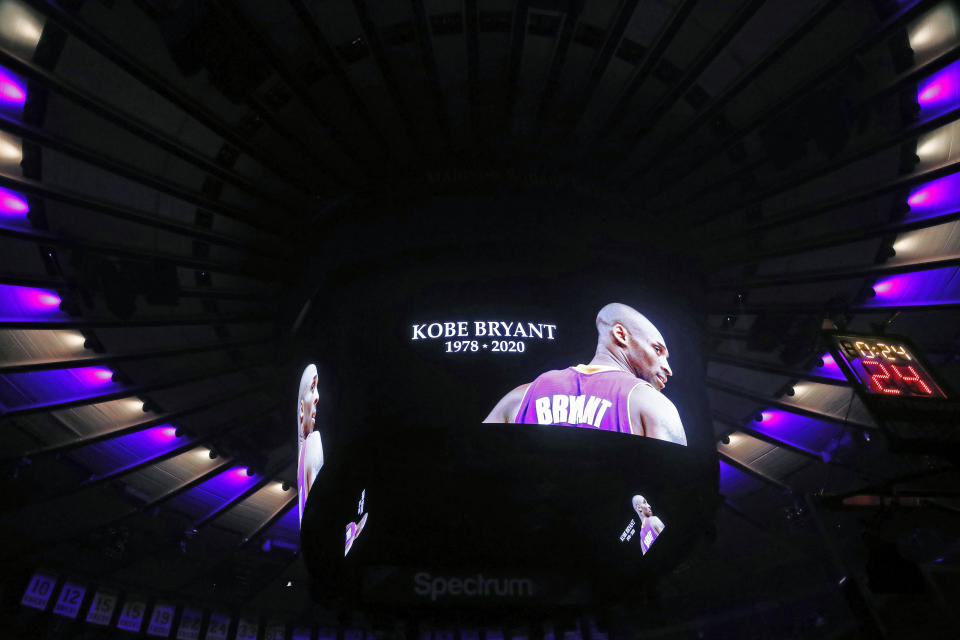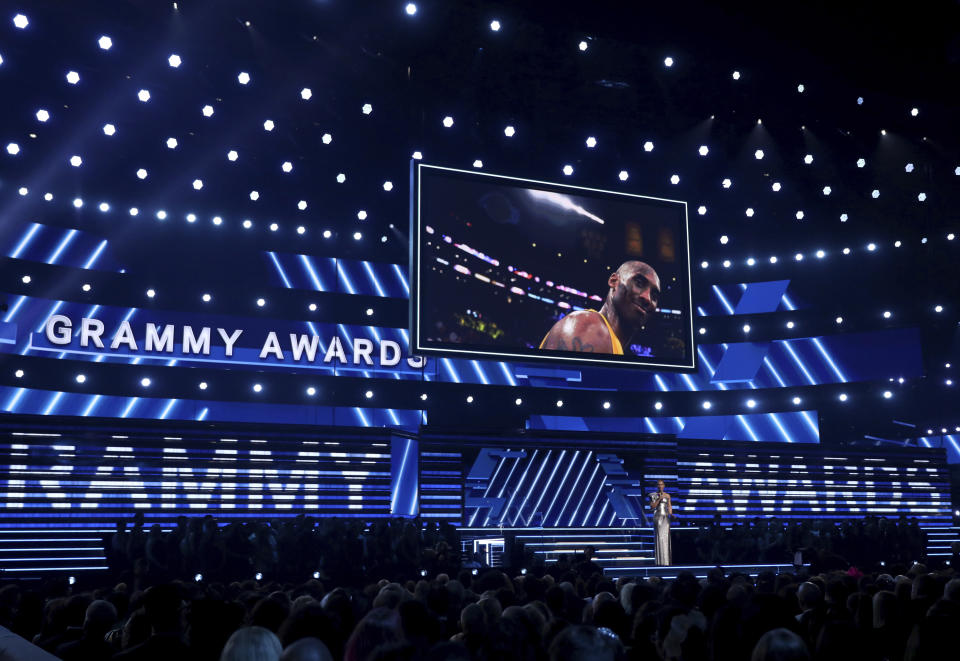The remarkable journey of Kobe: From Michael Jordan imitator to being unapologetically himself
NEW YORK — Diet Mike.
That’s how Kobe Bryant came into the NBA as a youngster, making it plain that he was coming for Michael Jordan’s throne even while Jordan was still playing and was still the gold standard by which all NBA players were to be judged.
He walked like him, talked like him, taking “Be Like Mike” to a whole other level. It was almost an annoyance, because we wondered what the real Kobe Bryant was like, not the Jordan facsimile.
There were all these physical similarities and other attributes that couldn’t be ignored, gifts he possessed that were, in some ways, equal to Jordan’s.
But it wasn’t until he stepped from Jordan’s shadow, perhaps upon realizing his story could never eclipse Jordan’s fairytale journey, that Bryant became his full self. He carried that full self into the second half of his basketball career and into his post-playing career as a filmmaker, basketball dad and someone who could cultivate future careers with his Mamba Academy — the place he was headed to at the time of his fatal helicopter crash early Sunday morning.
There were so many “Next Jordans,” but Bryant was the only one who had the game, the health and the audacity to chase him so brazenly. He wasn’t the athlete Jordan was, but he was a better long-range shooter and perhaps a streakier scorer.
Jordan always got the shot he wanted, and usually made it, but Kobe could hit any shot on the floor. It was why it appeared like Kobe took so many bad shots, because he made his share.
Remember Jordan’s storybook All-Star ending in 2003, when Jordan hit the presumed game-winner in overtime?

It was Bryant who had the temerity to squash that in an attempt to rewrite his own story, tying the game with free throws before it went into another overtime. It signified Bryant’s single-mindedness in authoring endings of his choosing, not the ones that fit into the box that enhanced Jordan’s mythology.
He was admittedly selfish throughout a decent chunk of his career and it nearly derailed him, the desire to be greater than the GOAT. At some point he realized Jordan had the perfect path, with no Shaquille O’Neal to share the spotlight, most notably.
And it was then when Bryant began to shed the Jordan mask and become a more intimate figure, someone who’s almost more relatable than Jordan.
To some, Jordan was an untouchable. He lived in the ivory tower and was symbolic of perfection with his unblemished Finals record and physical gifts that could not be replicated.
Jordan was Superman.
Kobe became Batman on the floor, an overachiever of sorts considering even his gifts had limits.
Other players of different sports and genres began to seek Bryant’s counsel, and he became a teacher of sorts as his championship-contending days wound down.
While his Achilles’ injury ended the era of elite Kobe, it opened the door to the mentor he evolved into in his final years.
Validation from Kobe became like manna from heaven for young players who didn’t witness Jordan play or couldn’t reach him. It was almost prophetic to hear LeBron James talk about Bryant in that sense Saturday after James passed Bryant on the all-time scoring list, even though they were always billed as rivals.
“He was our Jordan,” Nets guard Spencer Dinwiddie would often say, even suggesting Bryant was a better player than Jordan and that Bryant was even superior to James.
It was why Dinwiddie could no longer keep his composure in the visitors’ locker room at Madison Square Garden following the Nets’ loss to the Knicks on Sunday, hours after Bryant’s death was announced.
“I met Kobe several times,” said Dinwiddie, referring most recently to the last time Bryant was in New York, courtside for a Nets game last month. “We exchanged pleasantries, and maybe it’s a little over-exaggerating, but I felt like this was the first time he looked at me as a basketball player. For him to tell me in his book [that] I’m an All-Star …”

Then Dinwiddie began to crack, and the kid from South Central emerged, the kid who never thought he could fulfill the inspiration Bryant provided in terms of his own natural talent, the way Bryant’s fans believed he would never be accepted as the chosen one, that he had to take everything he was due.
“I talked about that popularity contest before. You don’t win stuff like that when you’re me. So for him to say that, I didn’t need to be selected anymore. I was an All-Star to him. It’s like my … family."
Dinwiddie’s eyes were welling, the tears flowing as his cheeks turned red. Bryant’s imperfections and willingness to bathe in his own humanity connected him to so many, especially those in the Los Angeles area.
Bryant went from an imposter to being unapologetically himself, even as a father who doted on his daughters and allowed Gianna — the 13-year-old daughter who died with him — to develop her own love for the game.
Unlike Jordan, who famously let his children know on the grandest stage they would have an impossible task being his kids, Bryant was out front and pushing, dedicating so much time to their growth — be it away from the public eye or courtside at arenas, explaining the intricacies of the game.
Bryant never truly changed as a player, nor did he have to. But he seemingly allowed his experiences to chart his future paths.
Even his petty beefs with Shaquille O’Neal made him seem personable as opposed to above the fray. Taking a helicopter to games to save his aging knees seemed to be the only appearance that he was above it all.
And he even turned that into a vehicle for his next endeavors, as he was transporting his daughter and seven others in the moment of his death.
So many athletes find it impossible to discover another way to channel their competitiveness and energy.
In some ways, Jordan never could. Because Kobe decided to step out and be his own man, he was fulfilled and maxed out in ways so many others will never feel.
More from Yahoo Sports:

